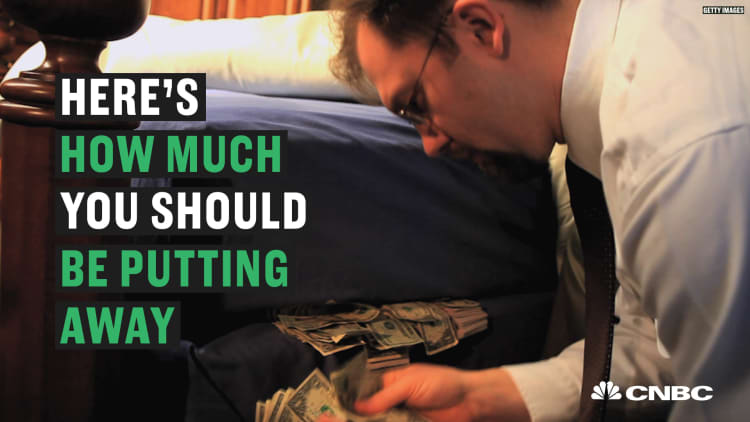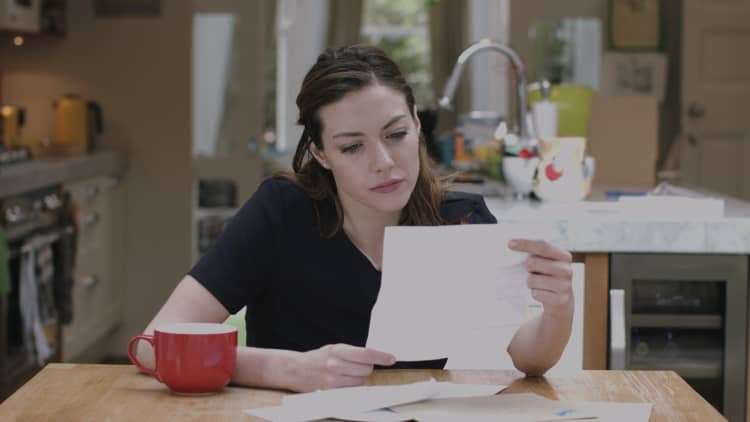Changes to the tax law might concern some Americans, but that's not the main thing keeping most up at night. Instead, it's the fear of unexpected expenses, according to financial website Lending Tree, which polled more than 1,000 adults on their financial concerns for 2018.
Nearly half, or 43 percent, listed "unexpected expenses" as their primary concern, while 34 percent chose the daily burden of "making ends meet." About a third, 29 percent, said they were most concerned with "health care costs" and 18 percent said the same of "tax changes."
Considering that less than half of U.S. adults have enough money to cover a $1,000 emergency, the fact that unexpected expenses and being able to make ends meet are ranked No. 1 and No. 2, respectively, doesn't come as a surprise.
Suze Orman, financial expert and former CNBC host, at the eMerge Americas conference in 2017, said having an emergency fund could be essential in case of a crisis.
"What if you get sick? What if you're hit by a car? What if something happens crazy in this world?" she said. "We live in the craziest world I've ever seen in my life right now, and the only way you can take craziness out is for you to make yourself secure."

Experts agree you should have three-to-six months' worth of savings. Orman suggests saving more. "You need as much money in the bank that makes you feel secure," she says. It could take eight-to-12 months' worth of savings to cover unexpected expenses or extended unemployment.
Generally speaking, it seems many Americans and are taking steps to improve their financial health. In a similar survey, financial website Bankrate found that many adults are prioritizing building up their savings. Nearly 60 percent of respondents said that the balance of their emergency fund or savings account was greater than their credit card debt. And, according to a recent Bank of America survey, one in six millennials now has $100,000 stashed away.
Lending Tree's survey shows that nearly all respondents are making good choices about how they manage their money: 95 percent use a monthly budget, 55 percent budget more than once a week and 30 percent budget every day. Almost half use a mobile or computer-based app to budget.

If you're looking to increase your savings, having a budget can help as can using an high-interest account to stash away, and make the most of, your extra income.
Putting away small amounts of money on a regular basis can help build savings over time. And automating your savings so that money transfers directly from your paycheck can streamline that process.
Overall, it seems many Americans are on the right track and, as a result, are more optimistic about their financial future. Two-thirds, or about 67 percent, of respondents expect their finances to improve this year, the survey points out, with millennials being the most optimistic. Of those aged 35 or under, 80 percent expect their finances to improve in 2018.
Regardless of age, though, "it is important to remember that consumers should save at all points in their lives, Heather Roche, vice president of deposits at Discover, says in a news release. "People should start saving early in life and stay consistent in that practice."
Like this story? Like CNBC Make It on Facebook!
Don't miss: 3 big tax myths the IRS wants to clear up for you
Video by Mary Stevens




